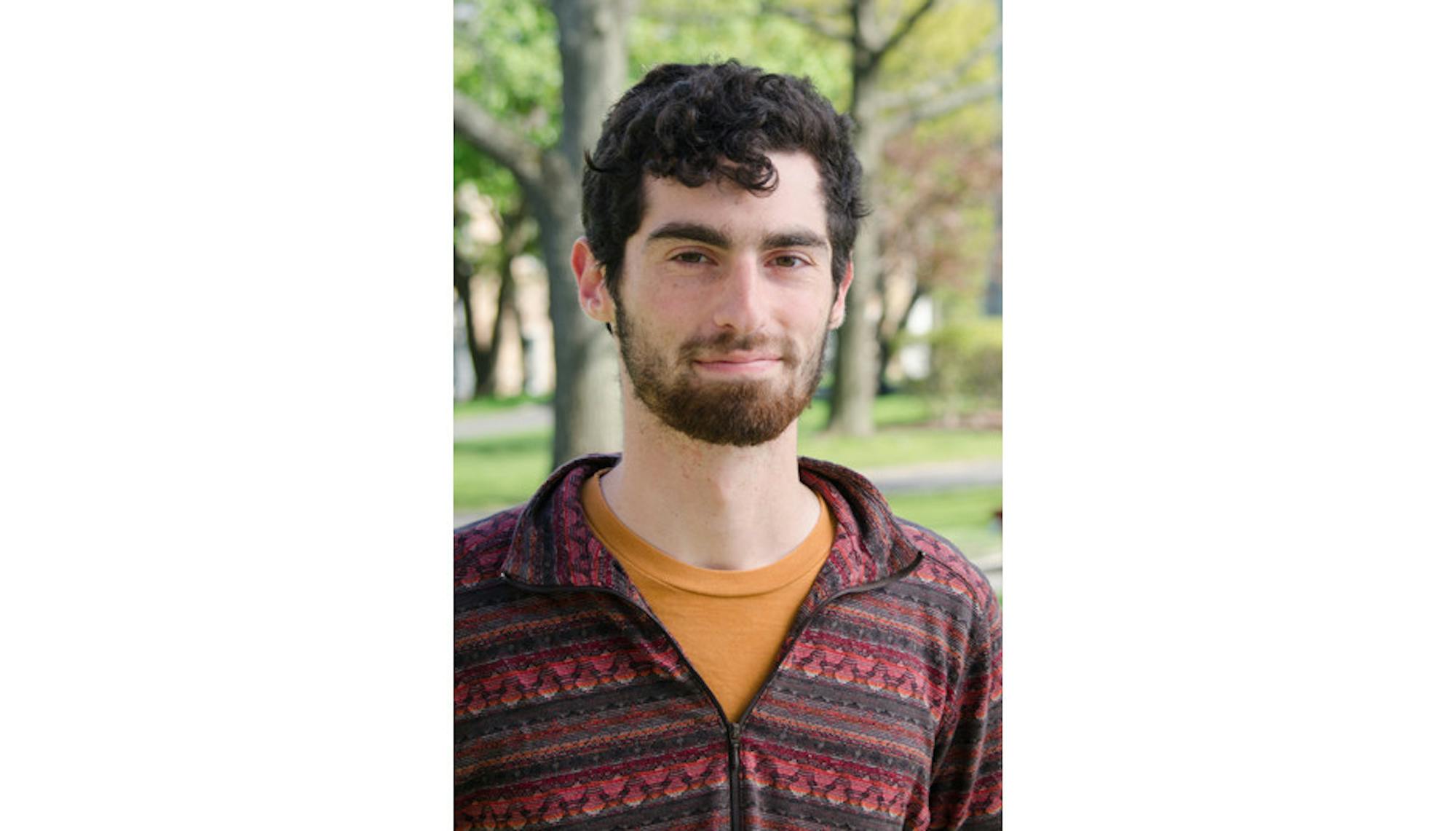The first time graduating senior Danny Garfield picked up a video camera and started recording, he was seven years old. His earliest forays into film were animations of his toys.
Film continued to be both a hobby and a fascination for Garfield throughout his childhood and into his high school years. He took classes and worked on side projects outside of school, even collaborating with his cousins on an amateur movie. He also fondly remembers playing around with lightning effects on iMovie when he got his first iMac computer. As “the only kid with an iMac on the block,” his house became a hub for friends who needed to edit their school video projects.
Still, film remained little more than a fun creative outlet.
“I never thought of myself as a filmmaker,” Garfield said. “Until I got to Tufts.”
Now at the end of his undergraduate career, with a short film he wrote and directed released after finals, a semester-long internship in Los Angeles on the Comedy Central show “Nathan for You” and a summer spent working on the set of a film under his belt, it’s safe to say he’s earned the title.
Along the way, Garfield’s conception of himself as an artist has evolved.
“I came in [to Tufts] wanting to make short films that were artistically driven sort of as a path to the independent film world,” he said.
When he first arrived at Tufts, he got involved with projects at the Experimental College, which served as an entry-point into the film community on campus. Working at the ExCollege also helped him to become familiar with the resources they offered to students, most notably a hidden gem of an editing lab.
But it wasn’t until his sophomore year that he made a discovery, which would shape the rest of his undergraduate career.
“I ended up realizing I really liked comedy,” Garfield said.
This newfound interest spurred him to join sketch comedy group, The Institute, as a video-sketch writer and editor. The role afforded him a lot of creative freedom, as well as the opportunity to hone his filmmaking chops.
“You can get pretty weird with it because it’s a small group of people,” he said.
How weird, exactly?
“I was on a rowboat shooting a talking fish once, and I built the inside of a spaceship in [Tufts University Television] TUTV another time,” he said.
Garfield is a physics major, a field which at first blush might not seem like an intuitive combination with film. But this was part of the draw of a liberal arts education for him, as opposed to, say, film school: the ability to pursue disparate passions.
“I liked the idea of liberal arts,” he said. “And also being indecisive.”
Beyond that, though, the discipline of physics dovetails with the more technical challenges of making a film, a side of the creative process that especially interests him. The summer after his sophomore year, Garfield got some hands-on experience, working on a film set in the Berkshires, where he helped design props and create visual effects. He even got to meet the legendary special effects maven Douglas Trumbull, whose CV includes "2001: A Space Odyssey" and "Blade Runner."
He brought some of the skills he acquired that summer to bear on the short film and apocalyptic comedy he wrote and directed titled “Laser Man 3: The Last Blast.” Funded entirely through a Kickstarter campaign and made in collaboration with some close friends, the film is set in a gas station and takes place in the 48 hours before a civilization-ending comet strikes the Earth.
Despite the condensed narrative, Garfield has invested a lot of time in this project.
“I’ve been living and breathing 'Laser Man' for the past six months,” he said.
Garfield, who released the film last week, is also looking to enter it into some indie film festivals, which could serve as a springboard into the industry.
Looking back on his past four years at Tufts, he is grateful for how his education — both on campus and beyond — has broadened his creative horizons. Certainly, there are certain programs he wishes he could have explored in greater depth.
“I regret not taking more poetry and ILVS [International Literary and Visual Studies] courses because I think that informs film in a great way,” said Garfield.
More than anything, though, his experience here has validated the choice he made four years ago — as well as his indecision.
“Now that I’m leaving this place,” he said, “I think I'm beginning to get why it’s so important for aspiring artists to go to a liberal arts school.”
Senior filmmaker Danny Garfield reflects on his time at Tufts

Danny Garfield poses for a portrait on the academic quad on May 10.





